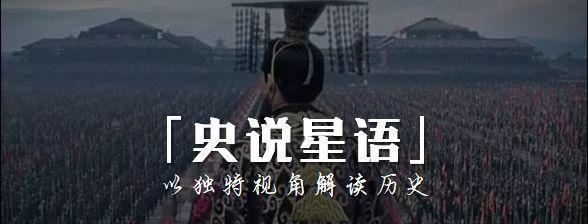
This is the 242nd original article of Shi Shuxing
It is said that the Duke of Qi Huan, the head of the Five Hegemons of the Spring and Autumn Period, at the beginning of his reign, launched two wars against his neighbor Lu Guo, one was the Battle of Qianshi, in order to preserve the throne he had just obtained; the other was the Battle of the Long Spoon that I want to talk about today. However, after the great victory over the Lu army at the Battle of Qianshi, the Battle of the Long Spoon was defeated miserably. It is said that the State of Qi is stronger than the State of Lu, and the Battle of the Long Spoon is a battle in which less wins more, is this really the case? So what is the military ideology reflected in this campaign?
In fact, in the early Spring and Autumn Period, the troops of the State of Lu and the State of Qi were basically the same, with thousands of chariots and 30,000 soldiers. Although the State of Qi suffered heavy losses in the Battle of Qianshi, and even the command car in which The Duke of Lu Zhuang was riding was taken away by the Qi army, after the defeat, the State of Lu had recovered before the Battle of Changspool, narrowing the gap between the two armies by a large margin. Moreover, the place where the Battle of the Long Spoon occurred was in the territory of the Lu State, and the familiarity of the geographical location was naturally more advantageous in the Lu State, after all, it was natural to suffer some losses when fighting on the territory of the runners.
The Battle of the Long Spoon was a small war between the princes, but the military ideas reflected in this war had a simple dialectical point of view, which was quite enlightening for future generations. As early as the Western Zhou Dynasty, the ancient war theory work "Military Chronicle" already had the operational principle of "the ancestors have the heart to seize the people, and the posterity has to wait for its decline".
It was precisely in light of the actual conditions of the Qi and Lu armies that Cao Jie concretized the principle of "future generations waiting for their decline" into the operational policy of "the enemy is tired and we fight", thus winning victories and creating a typical example of tactical "late strike" victory in the history of ancient Chinese warfare.
Judging from the situation before the Battle of Changspool, although due to the victory in the Battle of Qianshi, the strength of the Qi army was stronger than that of Lu, but the Qi army was a labor division expedition, going deep into the hinterland of the Lu state to bully others, and in terms of people, geography and other conditions, it was inferior to the Lu army. Therefore, the strength and weakness of Qi and Lu are relative, not absolute.
In this case, if the power contest is simply carried out, of course, the relatively strong side has a high probability of winning. In light of the actual situation, Cao Jie applied the theory that "posterity is waiting for its decline," and according to the soldiers, he did not move, and waited for the enemy to wait, so that the enemy's combat effectiveness was depleted in the increased movement of receiving the enemy, and when he was exhausted, he then used all his strength to press the enemy with "one blow", and the victory was of course not accidental.
Secondly, Cao Jie also understood the importance of correctly grasping the time and space joints, and chose the best time to start attacking just right. The timeliness of the fighter is particularly strong, and the good and good effects of the mastery are very different. Cao Jiao's choice to launch an attack when the Qi army began to charge after the three drums was extremely appropriate: too early, the Qi army's combat effectiveness had not yet weakened to the point of fatigue and depression; too late, it might fall into passivity and could not exert the power of a drum.
Cao Jie's theory of war had a considerable impact on later generations. The principles of "waiting for work with ease" and "hiding the sound of the traces, accumulating surpluses and waiting for exhaustion" have all been inspired by the battle of the long spoon.
In addition, through the dialogue between Cao Jie and Zhuang Gong, it can be seen that Cao Jie inherited the excellent tradition of attaching importance to political factors in ancient Chinese military thought, and like guan Zhong, a military expert at the same time, he understood the influence of the people's will on the war, believing that "the victory of all soldiers must also be used by the people."
Before cao jie decided to pursue, he carefully checked the ruts and flags to determine whether the Qi army was really defeated and whether there were ambushes. On the one hand, this reflects cao Jie's emphasis on investigation and research and his cautious attitude toward war, and on the other hand, it also reflects the characteristics of the era of war at that time. With the rapid changes in society, war has begun to develop towards strategizing, and people's war thinking has begun to get rid of the shackles of "not deceiving each other"!
How do you see the Battle of the Long Spoon
The comment area is exchanged